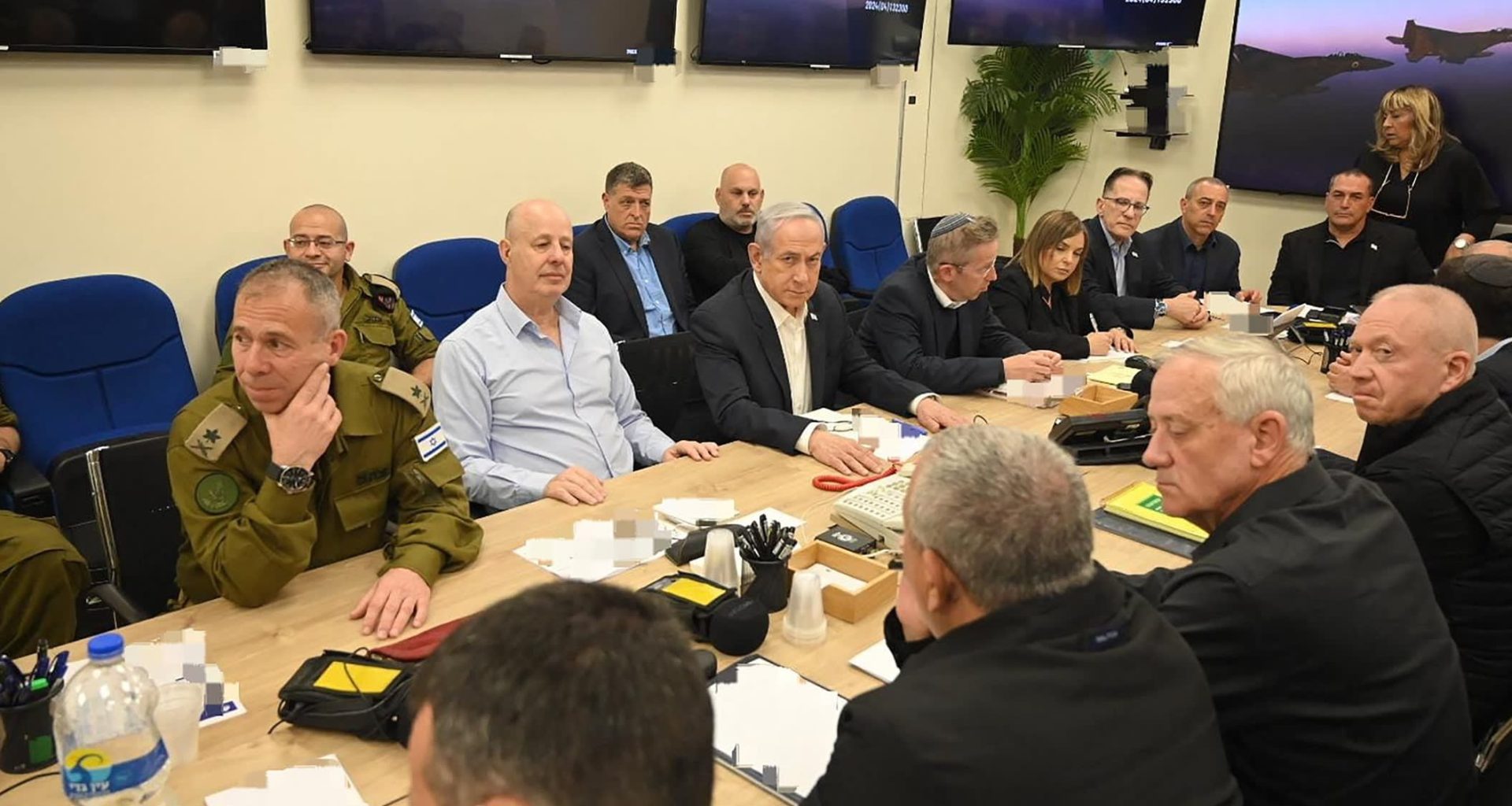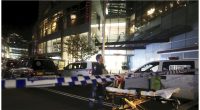Iran has fired a barrage of missiles and armed drones at Israel in retaliation for a suspected Israeli strike in Damascus that killed several senior Iranian commanders, pushing the Middle East closer to a full-blown regional war.
Just before 2am Israeli time sirens went off in Jerusalem, across southern and northern Israel and in the occupied Golan Heights. Skies over Israel were lit up by incoming missiles and Israeli air defence interceptors.
Daniel Hagari, Israel’s military spokesman, said Iran had fired more than 200 killer drones, cruise missiles and ballistic missiles at Israel. Speaking at 3am local time, he said the attack was “ongoing”, but that so far the vast majority of projectiles had been intercepted.
US President Joe Biden, who spoke to Israeli Prime Minister Benjamin Netanyahu on Saturday evening Washington time, condemned the “unprecedented” attack by Iran and its proxies operating out of Yemen, Syria and Iraq.
US aircraft and two US destroyers, one of which Washington moved to the region over the past week, “helped Israel take down nearly all of the incoming drones and missiles”, he said. US defence secretary Lloyd Austin said US forces had intercepted “dozens” of projectiles as he called on Iran to “de-escalate tensions”.
Biden said he would convene other G7 leaders on Sunday “to co-ordinate a united diplomatic response to Iran’s brazen attack”. Following a request from Israel, the UN Security Council also scheduled an emergency meeting for Sunday to discuss the attack.
Iran’s mission to the UN said on social media platform X that the attack was in response to Israel’s suspected strike on the Iranian consular building in Damascus on April 1. It said “the matter can be deemed concluded”. But it added that should Israel “make another mistake, Iran’s response will be considerably more severe” and warned the US to “stay away”.
UN secretary-general António Guterres urged all parties to show restraint, saying he was “deeply alarmed about the very real danger of a devastating region-wide escalation”.
Iran’s Revolutionary Guards claimed “dozens” of missiles and drones had been launched against Israel. Iran’s foreign ministry said later that the attack had been targeted at Israeli “military bases” and had been carried out in defence of Iran’s “sovereignty and territorial integrity”.
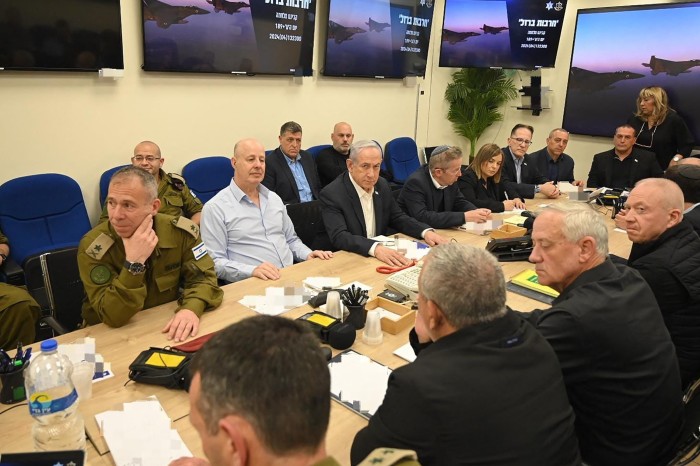
Tasnim news agency, which is affiliated to the Revolutionary Guards, described the assault as a “multi-layered attack from four directions”, deploying “hundreds of drones and a large number of missiles of different types”.
It said Lebanese militant group Hizbollah, Iraqi militants and Houthi rebels in Yemen had participated in the attacks against Israel. Hizbollah said it had launched dozens of Katyusha rockets at an Israeli barracks in the Golan Heights.
The Israeli paramedic service said a 10 year-old Bedouin girl had been critically wounded in the country’s south. Hagari said minor damage had been done to an Israeli military base, also in the south.
Shortly before the barrage reached Israel on Sunday, the Israeli military warned people in the occupied Golan Heights, as well as in the areas around the southern towns of Dimona, Nevatim and Eilat to stay close to shelters “until further notice”.
Israel’s suspected strike on the consulate in Damascus was a significant escalation of the hostilities that have engulfed the Middle East since the war between Hamas and Israel erupted in October.
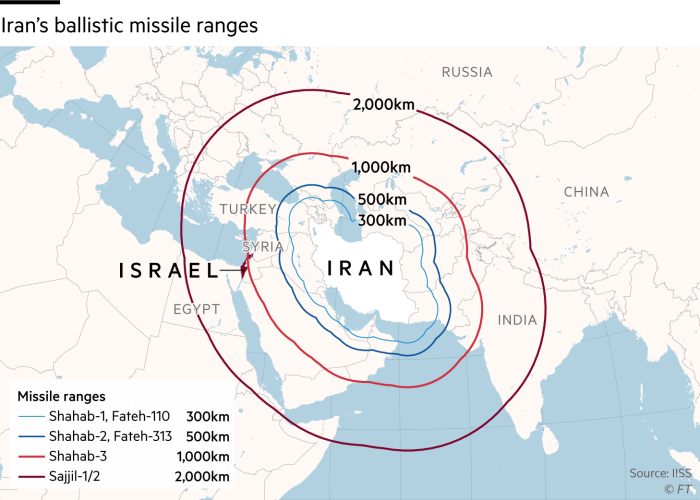
In the past six months Israeli forces have traded near-daily fire with Hizbollah in Lebanon, while other Iranian proxies in Iraq, Syria and Yemen have also fired missiles and drones at Israel.
But until now, Iran and Israel have avoided a direct confrontation. Despite their long history of enmity, the two countries have never exchanged fire using strikes launched from their own soil. Only once before — in 2018 — did Iranian forces based in Syria fire on Israel directly.
The Iranian attack “puts the region on the precipice of a broader regional war that almost no one seems to actually want,” said Jonathan Panikoff, director of the Atlantic council’s Scowcroft Middle East Security Initiative.
Iran’s first direct attack on Israel “shatters the previous conflict threshold” in their long running war, he said. “What is clear is that this is the beginning of a new era, one in which Iran is willing to respond directly to Israeli attacks and in doing so risk retaliation against the Iranian homeland.”
Iran’s leadership had vowed to exact revenge after the strike on the consulate in Damascus, which Iranian officials said they considered “sovereign territory”. The strike claimed the lives of a senior Iranian general and six other military officers.
In recent days, Israel has been bracing for the response. Earlier on Saturday, the Israeli military announced limits on public gatherings and shuttered schools for the next two days.
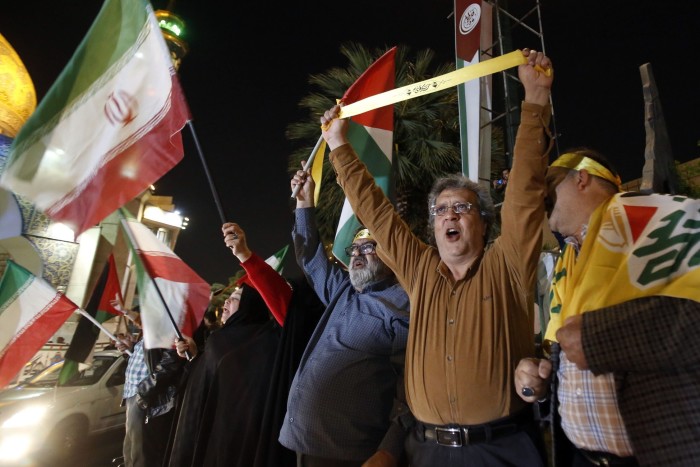
In a recorded statement on Saturday, before he convened the war cabinet, Netanyahu said he appreciated the US “standing by Israel’s side”, and the support of the UK, France and other countries.
The long-serving premier also issued a direct threat to Iran. “I established a clear principle — whoever hurts us, we hurt him. We will protect ourselves from any threat and we will do so with composure and determination,” he said.
Biden’s comments came after he cut short a weekend trip to Delaware to return to Washington. Republican lawmakers in the US House of Representatives said they were drafting new legislation to provide more aid to Israel and sanction Iran and its allies.
In a social media post, Republican presidential candidate Donald Trump said: “This would NEVER have happened if I were President!”
Additional reporting by Lauren Fedor in Dallas
Read More: World News | Entertainment News | Celeb News
FT

